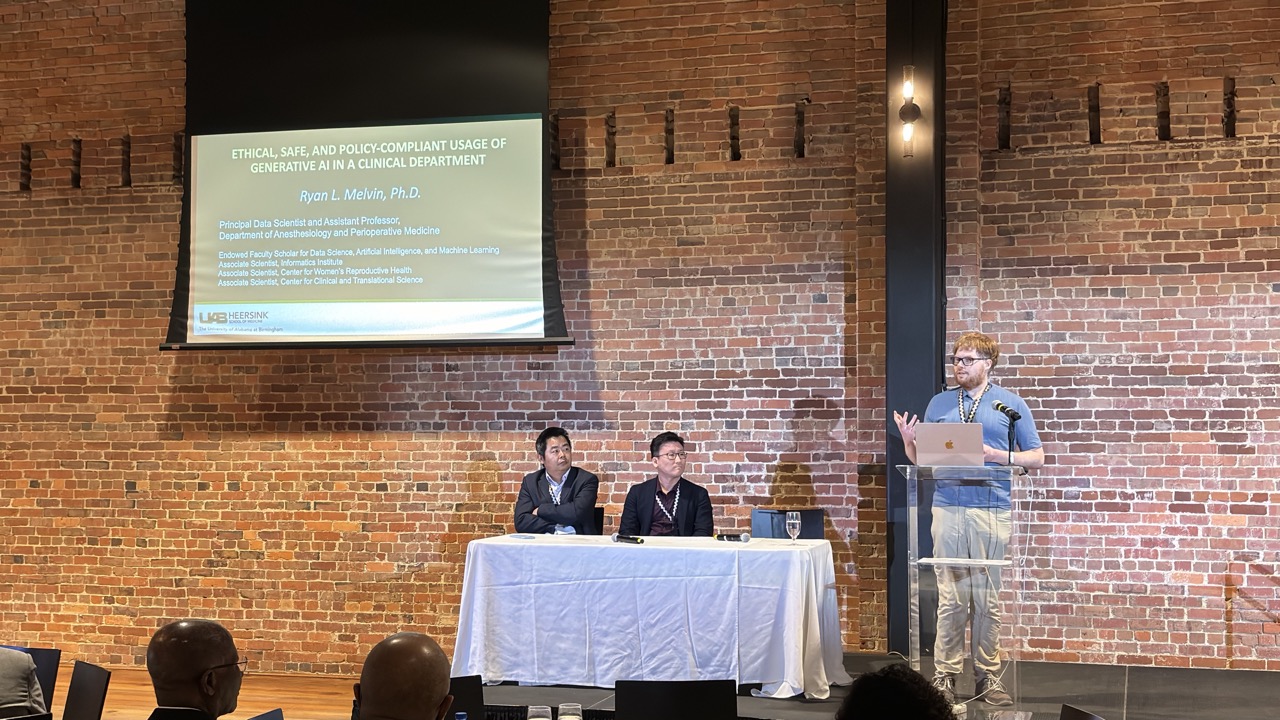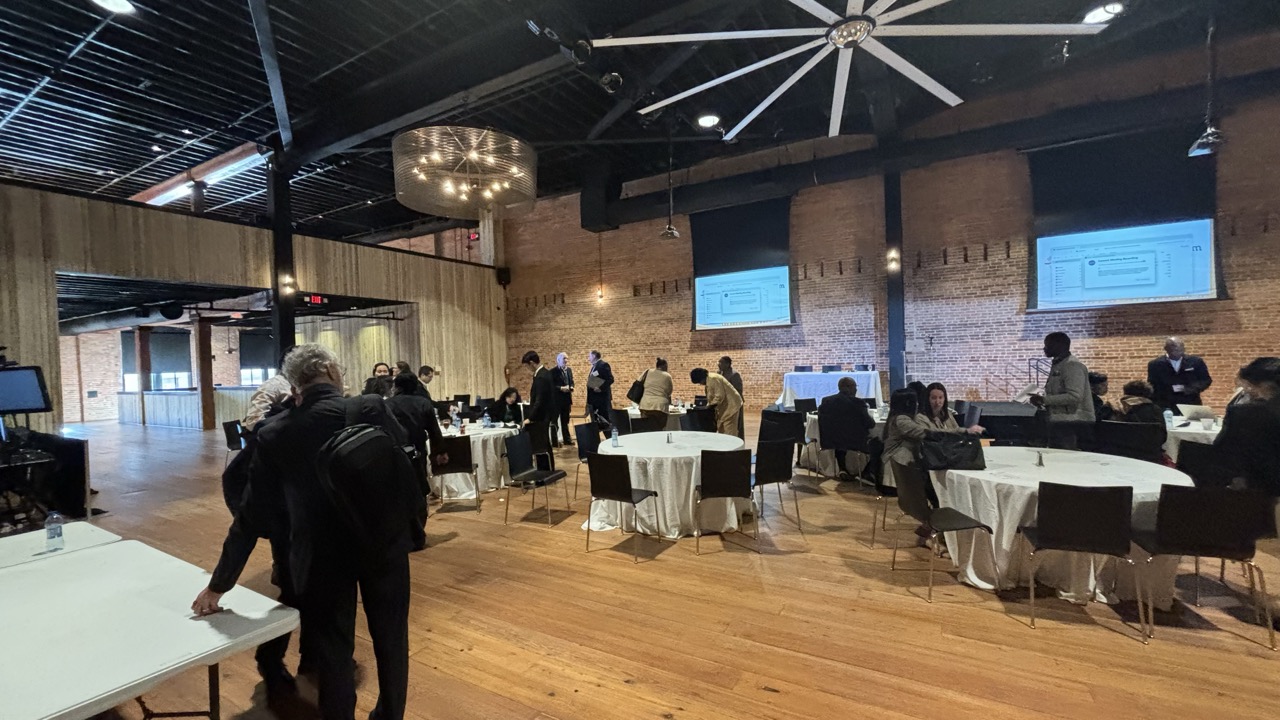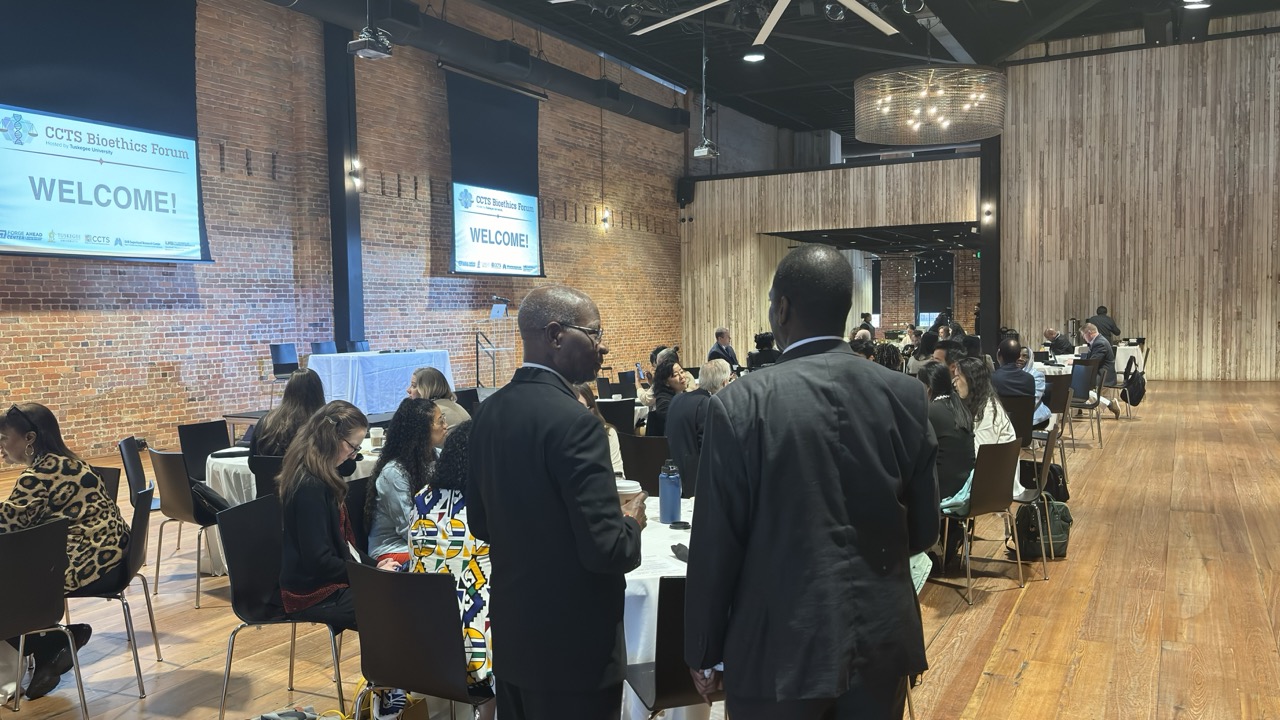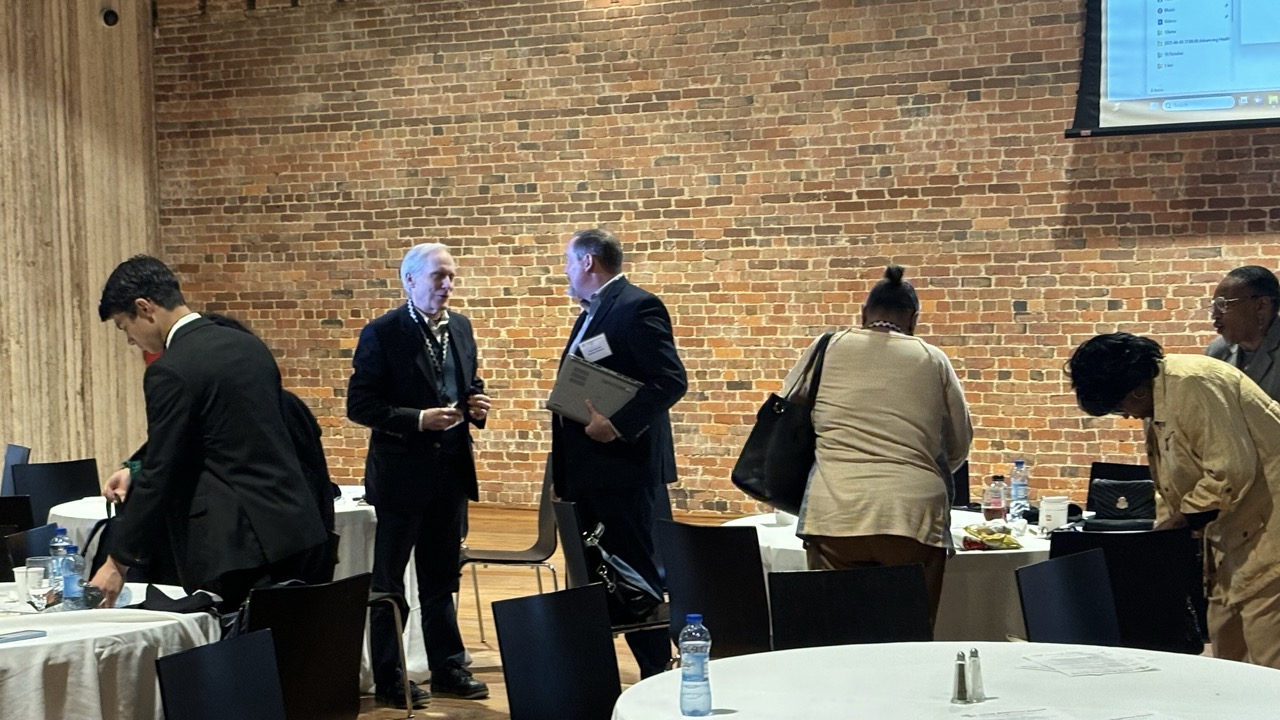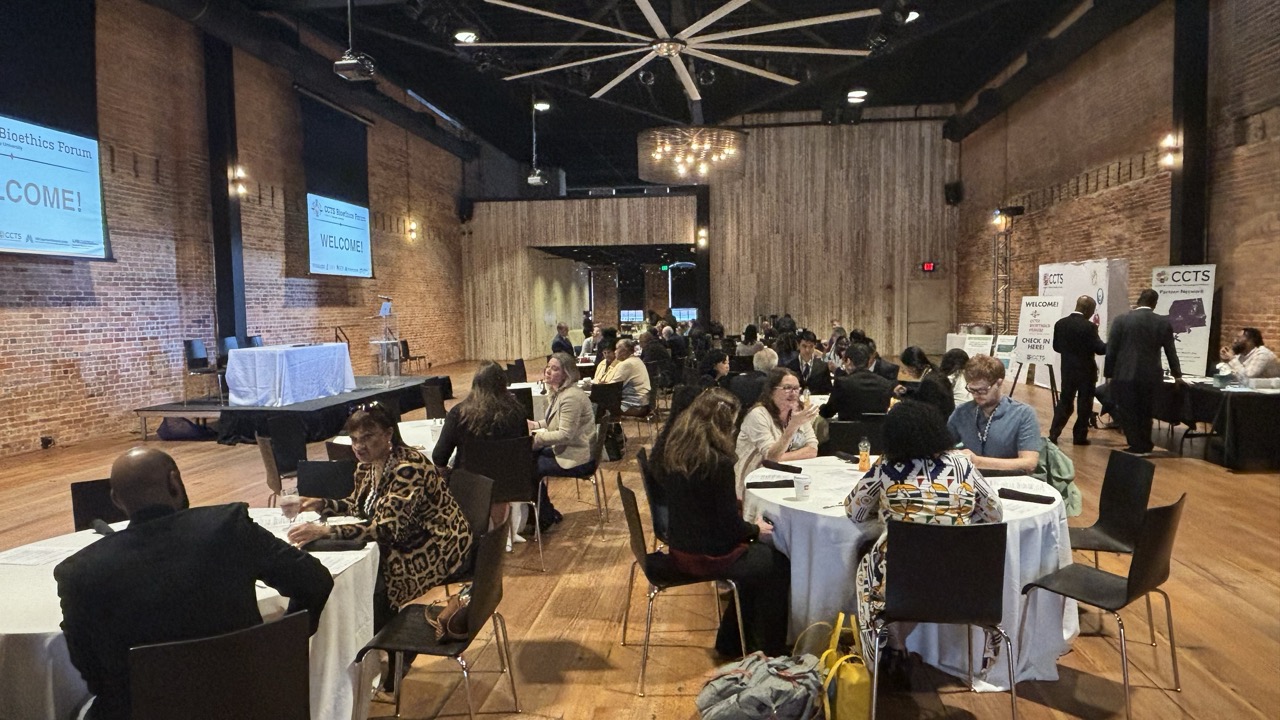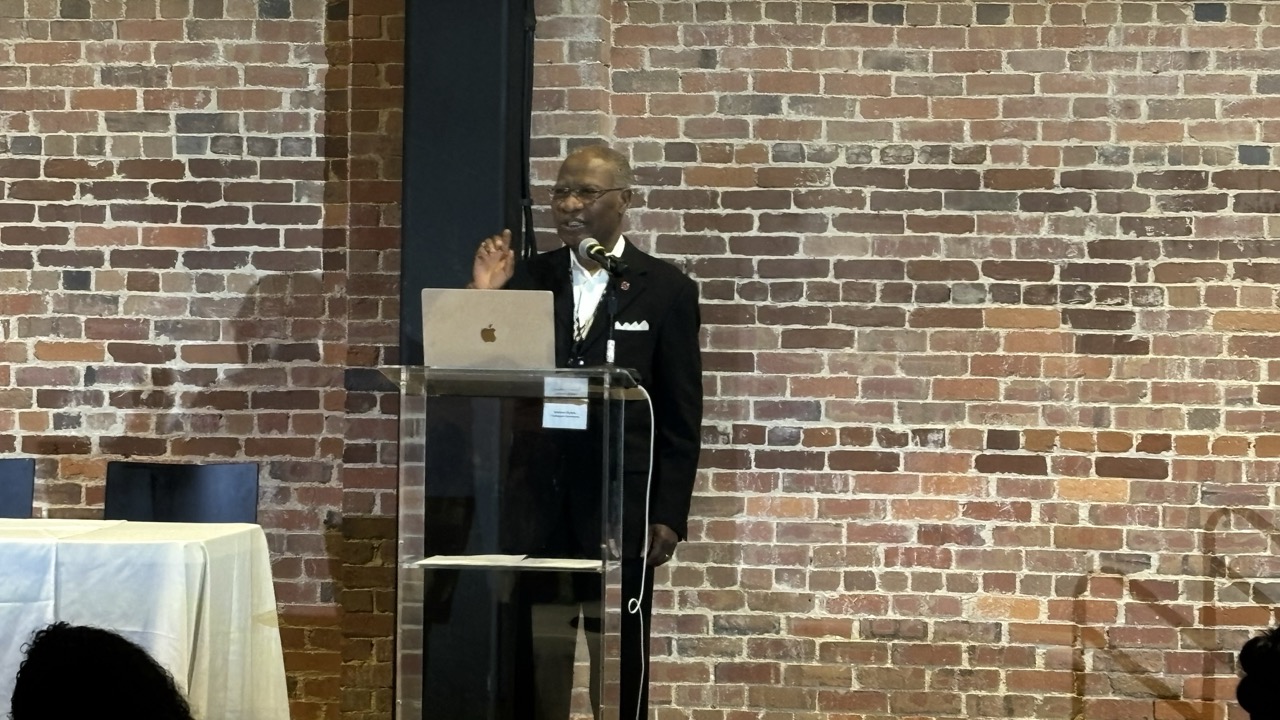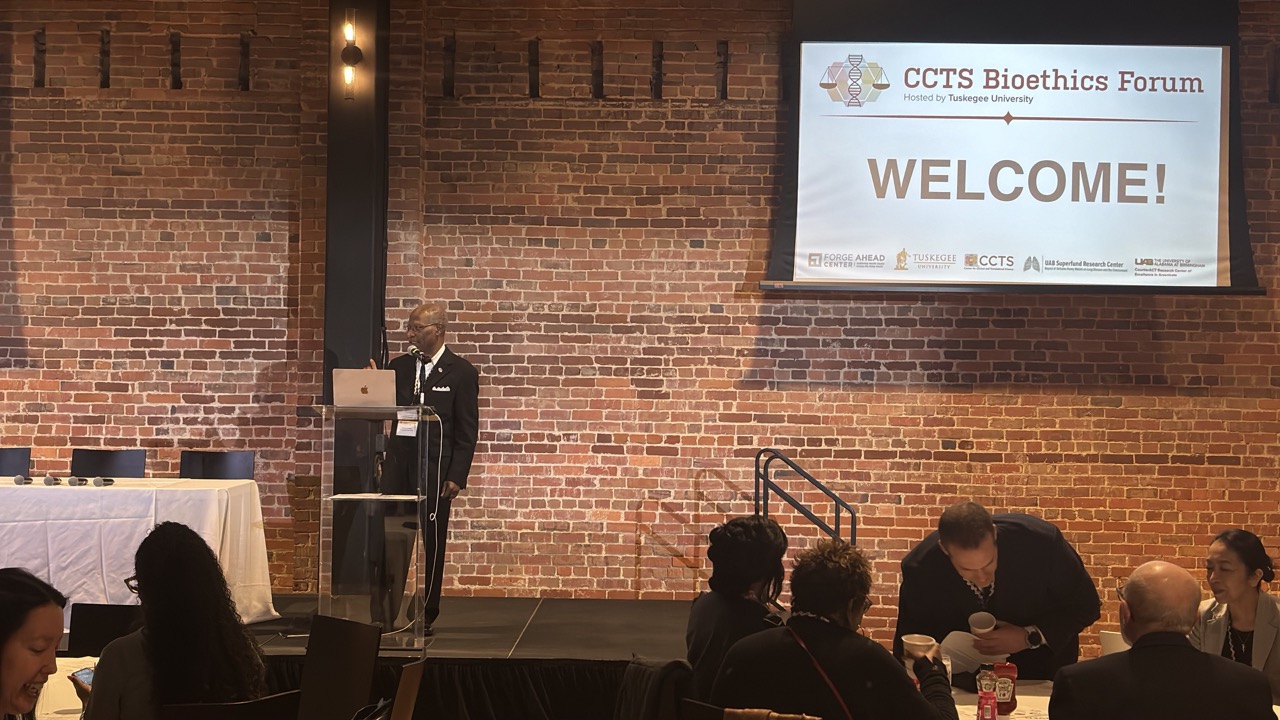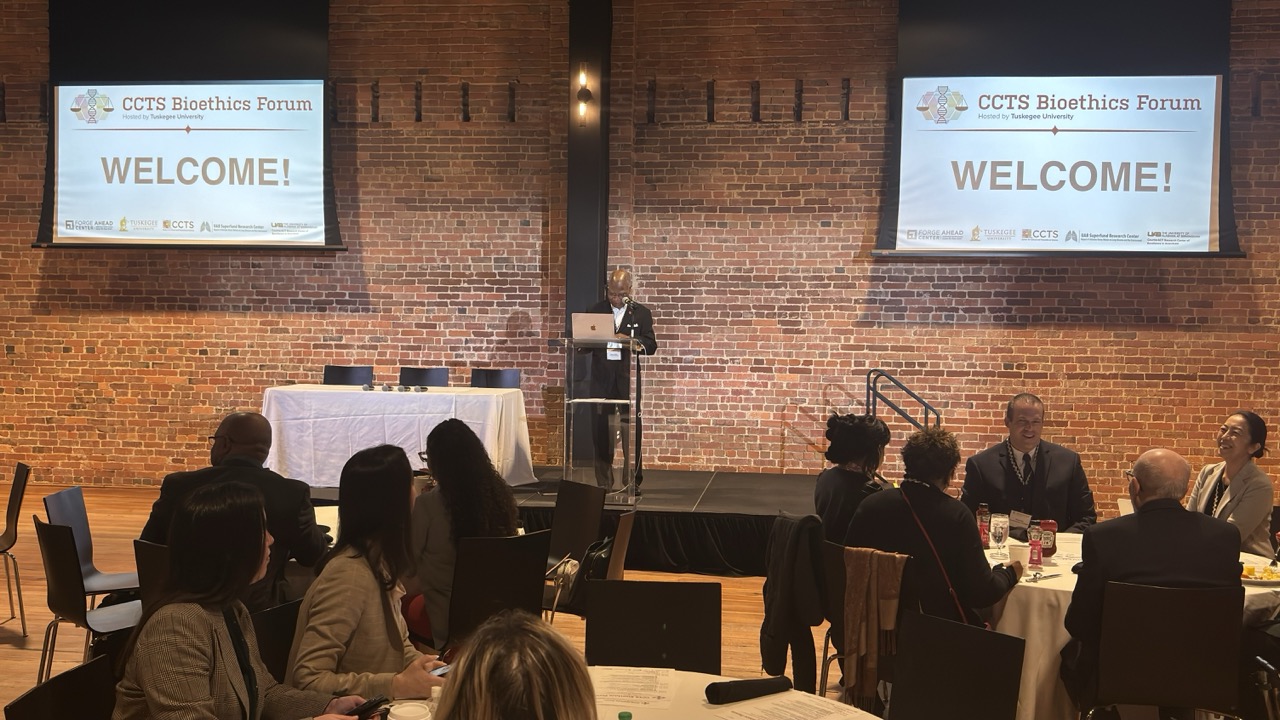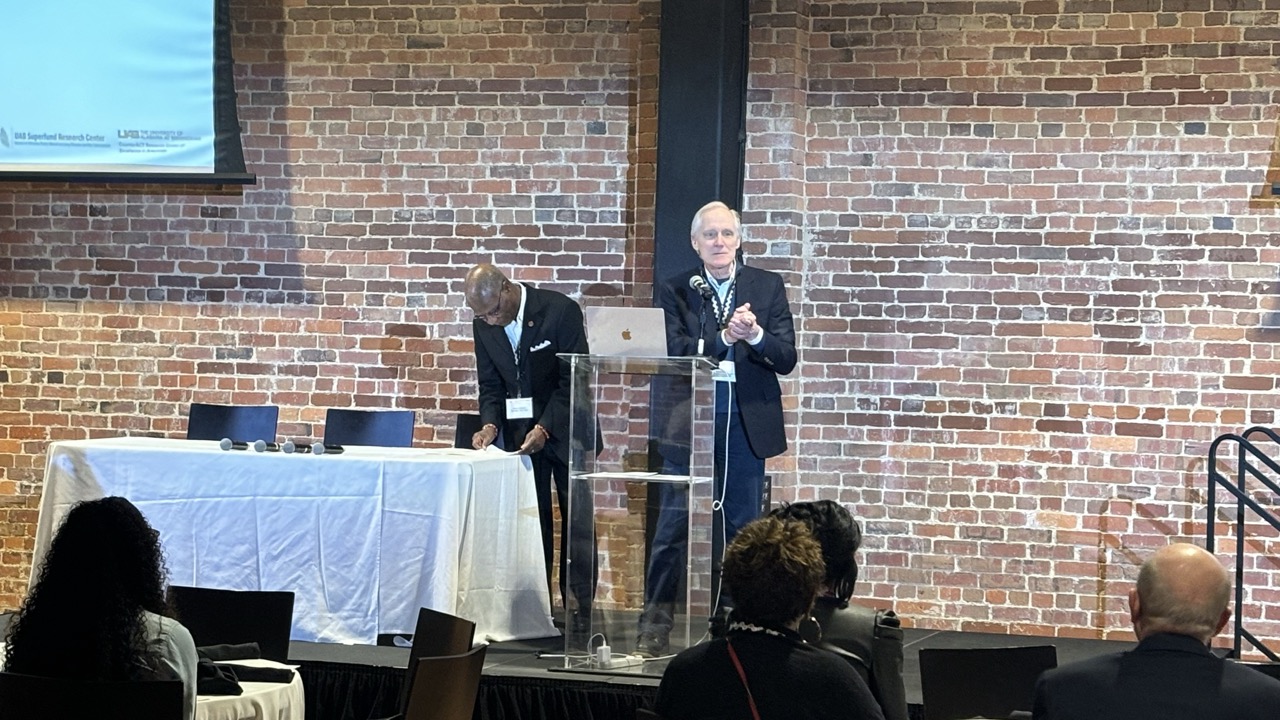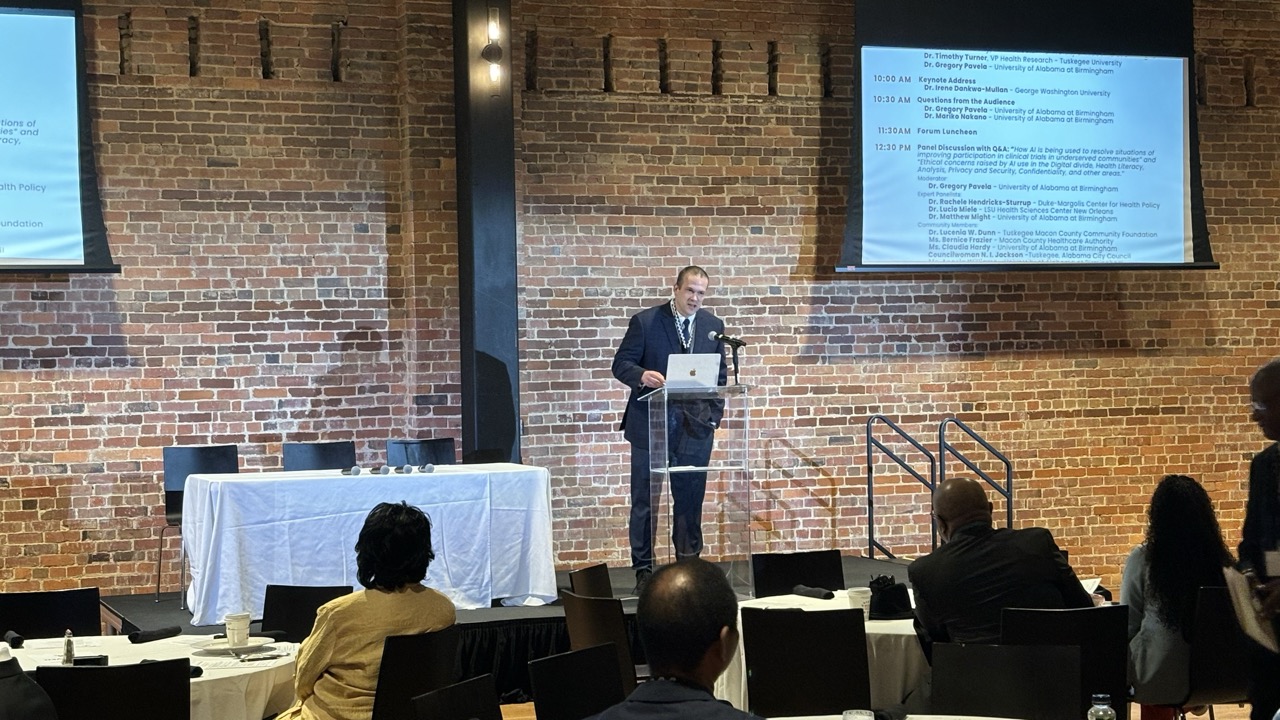Written by Brian C. Moon - Feb. 28, 2024
On February 23, 2024, the CCTS Bioethics Forum, themed "Ethical AI: Bridging Gaps in Healthcare and Research for Underserved Communities," convened in person in Montgomery, Alabama. Hosted by Tuskegee University and co-sponsored by the Forge AHEAD Center, Tuskegee University, the CCTS, UAB Superfund Research Center, and UAB Research Center of Excellence in Arsenicals, this year's forum brought together an enthusiastic group of attendees from across the CCTS Partner Network to delve into the ethical considerations surrounding Artificial Intelligence (AI) in healthcare.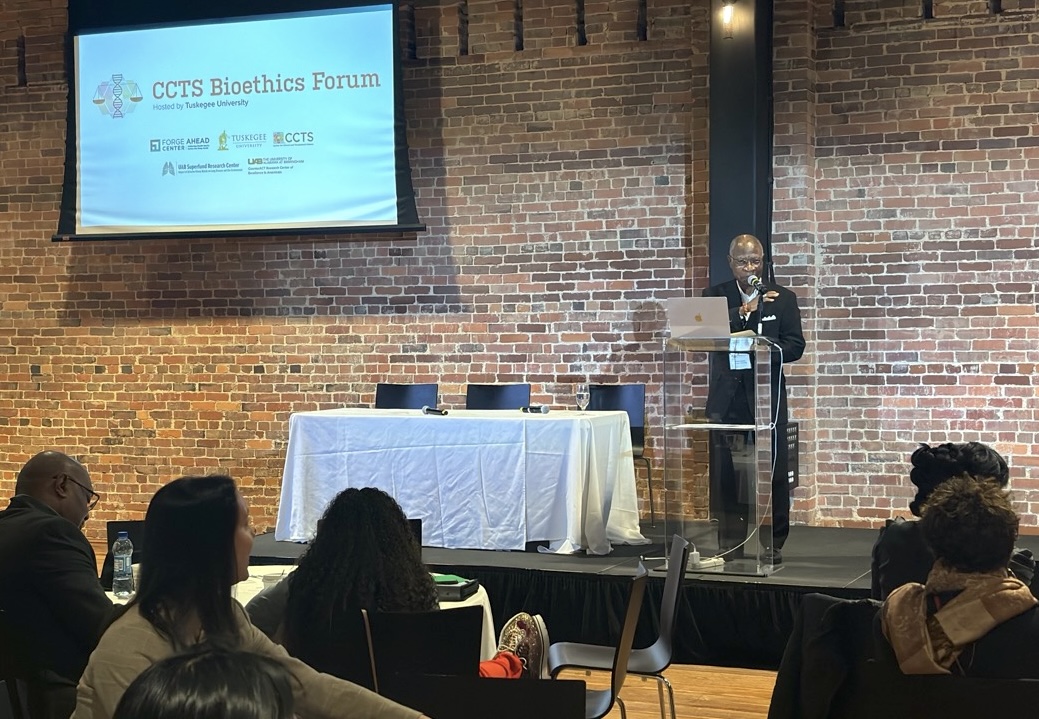 The forum kicked off with a warm welcome from forum host, Dr. Stephen Sodeke from Tuskegee University. In his overview of the forum, Dr. Sodeke commented, "We designed this event to engage in conversations about Artificial Intelligence (AI) and its intersection with healthcare ethics and health research. Our primary focus is on underserved and marginalized populations, exploring the delicate balance between harnessing AI's potential to revolutionize healthcare and health research while upholding ethical principles to ensure equitable participation and access for all." The event welcome was followed by brief, insightful remarks from CCTS Director Dr. Robert Kimberly, and VP of Health Research at Tuskegee, Dr. Timothy Turner.
The forum kicked off with a warm welcome from forum host, Dr. Stephen Sodeke from Tuskegee University. In his overview of the forum, Dr. Sodeke commented, "We designed this event to engage in conversations about Artificial Intelligence (AI) and its intersection with healthcare ethics and health research. Our primary focus is on underserved and marginalized populations, exploring the delicate balance between harnessing AI's potential to revolutionize healthcare and health research while upholding ethical principles to ensure equitable participation and access for all." The event welcome was followed by brief, insightful remarks from CCTS Director Dr. Robert Kimberly, and VP of Health Research at Tuskegee, Dr. Timothy Turner. The keynote address, delivered by Dr. Irene Dankwa-Mullan, underscored the pivotal role of health professionals in leveraging AI technologies ethically to ensure optimal health outcomes for all, particularly underserved communities. Dr. Dankwa-Mullan emphasized the need to address biases in AI technologies and the importance of inclusive data and varied voices to build trust. Dr. Dankwa-Mullan allocated ample time at the end of her presentation for questions from the audience, facilitating vibrant discussions and deeper exploration of the topics presented.
Following the keynote, a lively panel discussion and Q&A session allowed attendees to explore topics of inclusive data and ethical AI use further. The panel, featuring experts Dr. Rachele Hendricks-Sturrup, Dr. Lucio Miele, and Dr. Matthew Might, focused on AI's role in clinical trials, addressing the digital divide, and tackling ethical concerns in privacy, security, and confidentiality, among other topics. The discussion, wonderfully moderated by Dr. Gregory Pavela, also included a series of hypothetical scenarios of AI usage in underserved areas presented by community leaders, allowing the panel experts to comment and discuss ways these scenarios should be addressed. The dialogue underscored the critical need for ethical considerations in AI education, design & deployment, and the imperative to rebuild trust within underserved communities to ensure that advancements in AI contribute positively to healthcare equity. Community leaders who participated in the panel discussion include Ms. Bernice Frazier, Ms. Claudia Hardy, Councilwoman N. I. Jackson, and Ms. Angela Williams.
The forum culminated in a series of three enlightening lightning talks, moderated by Dr. Bruce Korf, which illuminated the cutting-edge research and AI applications currently under development for clinical environments. These presentations not only underscored the forum's dedication to advancing ethical AI in healthcare but also offered a treasure trove of insightful content.
|
Stay Engaged!
|
We extend our heartfelt thanks to everyone who attended this year's CCTS Bioethics Forum. Your participation and insights were invaluable to the success of our discussions on Ethical AI in Healthcare for Underserved Communities. For those unable to attend or who wish to revisit the conversations, we invite you to watch the recordings available on the CCTS's Video channel. Staying engaged and informed about the ethical use of AI in healthcare is crucial as we work together to ensure that technological advancements benefit all members of our society, particularly the underserved. Let's continue to be part of this important conversation, shaping a future where AI enhances healthcare equity and access for everyone.



